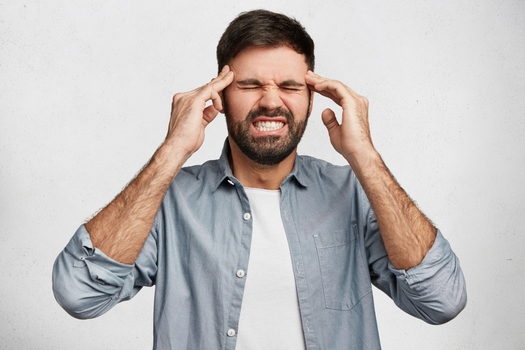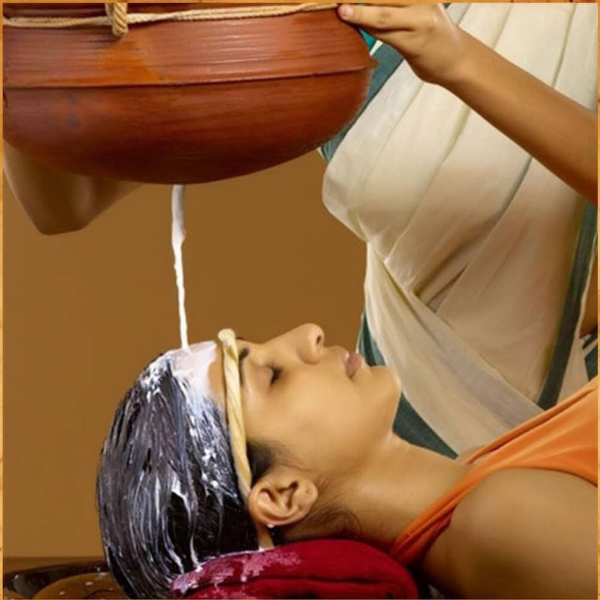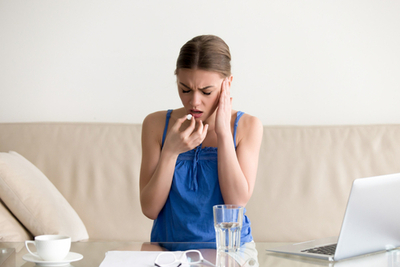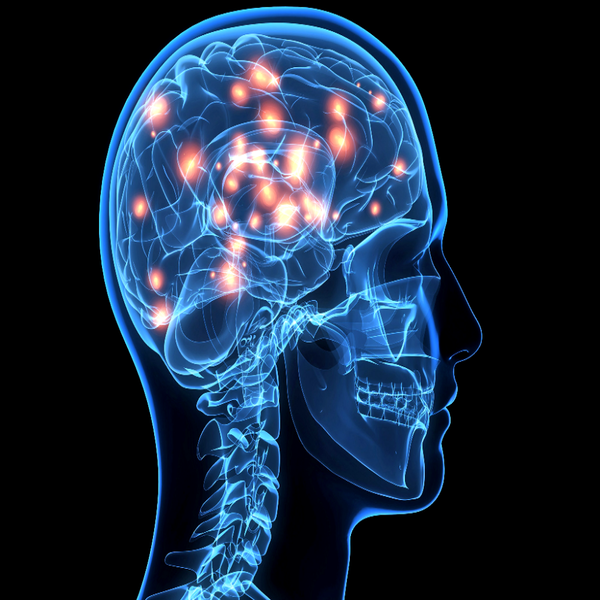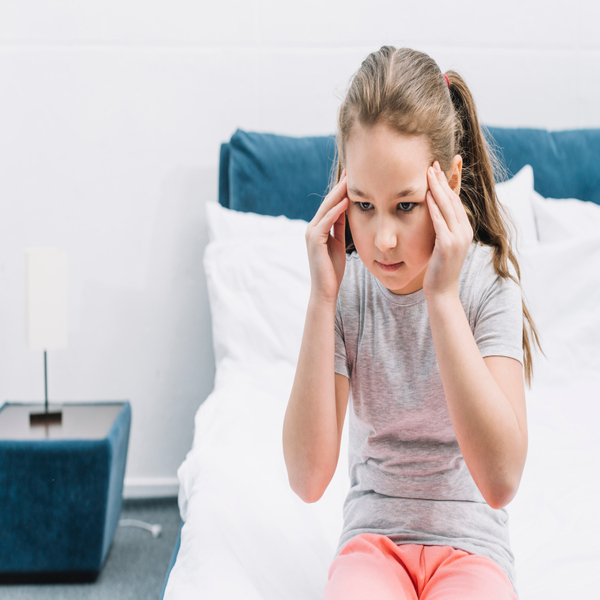Treating Migraine Naturally: Migraine treatment without painkillers
Elementor #1815
Are Migraine and cervical pain related?
Are Sinus Headache and Migraine Linked?
Shirodhara Treatment for Migraine: A Natural Way to Cure Migraine Permanently
Can Migraine be Cured Permanently?
A Comprehensive Guide To Best Ayurvedic Treatment for Migraine
Chronic Headaches in Children and Adolescents: Diagnosis and Treatment
How to Manage Migraine During Pregnancy?
Handling migraines during pregnancy is not at all easy. The already not so easy journey becomes more difficult if you are experiencing bad headaches during pregnancy. Best treatment for Migraine is a combination of lifestyle adjustments, identifying triggers, and consulting with an expert who has been handling Migraines with ease. Here are some tips on how to manage migraine during pregnancy:
Avoid Triggers of Migraine
Every migraine patient generally knows that what worsens his/her headache. For example, being empty stomach, having inadequate sleep, loud music, travelling, being out in sunlight are some of the known potent triggers. You should completely refrain yourself from these triggers if you are pregnant or are trying to conceive.
Best doctor for migraine treatment is the one who not only gives you medicines but also advises to stay away from the possible triggers of migraine. At our centre, we usually have a detailed consultation with the patient. It is just not the frequency and intensity of pain that is being questioned and discussed but what could be the possible triggers of your headaches is being discussed with the doctor. You are then advised to refrain from those triggers.
Being wakened up from a deep sleep can also trigger headaches in Migraine patients. So, you should not use loud alarm clocks and avoid sleeping next to a person who keeps snoozing his/her alarm over and again. Small things can make big differences. Start incorporating these things from today itself.
Migraine Medicines for Pregnancy
Managing migraines during pregnancy can be very difficult because the painkillers and other medicines for migraine are not safe for pregnant women. There are certain migraine medicine for pregnancy that an Ayurveda physician can use like Brahmi, Shankhpushpi, Avipattikar churna etc. which are generally safe to use. Generally, people perceive that you are given many Ayurvedic medicines for migraine but it is not so. Doctor at our clinic gives very few medicines for chronic headache and this is why patients believe she is the best doctor for Migraine treatment.
Shirodhara for Migraines
If you are pregnant and having hard time with headaches then shirodhara, one of the procedures of Panchkarma is for you. This is the best treatment for Migraine if you cannot have oral medicines. The choice of oral medicines gets limited during pregnancy for an Ayurveda practitioner. But Shirodhara being an external treatment is a good option.
Moreover, it is a very relaxing therapy. A stream of warm medicated oil is poured over the centre of the forehead behind which lies the pineal gland in the brain. It releases happy hormones in the body. The continuous warm oil being poured over third eye releases the tension in the head. It is an effective treatment for Tension headaches or stress headaches. The patients at our centre start snoring on Shirodhara table which means it is this quick acting.
During pregnancy, you are bound to get mood swings so Shirodhara is again very beneficial in uplifting the mood and easing your headaches. Majority of Migraine patients say that their headaches come down if somebody does a head massage to them. Shirodhara brings similar relief and much more. After the dhara is over, a good head massage is done and the stiffness of neck is released.
Migraine also starts from neck area and creates stiffness of the neck. There are various Ayurvedic oils used for Shirodhara like Mahanarayan, Brahmi, Chandan Bala, Dhanvantaram depening upon Prakriti of the patient and severity of the disease. Given its benefits, you definitely should get Shirodhara done at best ayurvedic clinic near you.
How to Handle Nausea with Migraine During Pregnancy?
As if pregnancy was not enough to make you pukish and nauseous all the time, Migraines simply add to the woes. Now, you are struggling hard to find out what is giving more nausea or vomiting sensation to you: Migraine or Pregnancy. Whatever it be, we always have the best cure for headaches.
Whenever you feel like vomiting, chew a small cardamom. Keep it in your mouth for a while and it will absorb the excess saliva and take it down the throat. This will ease your nausea. You can chew some fennel seeds. Roast them in a hot pan and crush it to coarse powder. After each meal, make a habit of putting them in the mouth. This will also aid your digestion and considerably reduce vomiting sensation. These simple home remedies can ease nausea but if you are give migraine medicine for pregnancy, it will bring it down to a greater extent.
Migraine after Delivery (Post Partum Migraines)
Some women are blessed to be relieved of headaches when they are pregnant but are bound to experience worst headaches of their lives post their delivery. These headaches are again difficult to manage because if you are breastfeeding your baby, the choice of drugs become limited. You should avoid taking pain killers during this period. The prolactin hormone increases in the body following baby birth and this hormone is also responsible for giving terrible headaches. This hormone cannot be brought down with the medicines but there are certain Ayurvedic medicines for migraine after delivery which can be given to new Moms for treating their headaches.
New moms experience sleepless nights which again is a bad trigger for Migraine. The baby keeps you awake all the night, so fatigue and tiredness also start embracing you. This can also give Migraine attacks. The constant crying of the baby can be a potent trigger of making things worse. So, if you want to enjoy your new motherhood without headaches, get in touch with our centre. We have treated good number of breastfeeding mothers with diet and lifestyle modification.
Things to Take Care if you are a Migraine Patient and Planning to Conceive
If you know, you already are a Migraine patient and you are planning to conceive, then the first thing is to get your Migraine treated. Yes, Migraine is curable and treatable with Ayurvedic medicines at our centre. If you just make a habit of taking painkillers each time you have headache, you will repent during pregnancy and breastfeeding because your doctor is going to stop these medicines once you are pregnant as they are not at all safe and you are left with no option but to handle headaches on your own. We had a patient of Migraine who got her foetus aborted because her migraines worsened during pregnancy. It is never too late as all chronic migraines or chronic headaches can be treated, the day you want to.
Navigating Migraine Treatment: How to Find the Right Specialist
Migraine is a complex and debilitating neurological condition that affects millions of people worldwide. It is characterized by recurrent, severe headaches often accompanied by other symptoms like nausea, vomiting, and sensitivity to light and sound. Chronic migraine, in particular, can significantly impact a person’s quality of life. Finding the right specialist for migraine treatment is crucial for effectively managing this condition. In this article, we will explore the various options available to individuals seeking the best treatment for their migraine headaches, including holistic approaches like Ayurvedic treatment.
Understanding Migraine
Before delving into the search for the right specialist, it’s essential to understand migraine and its nuances. Migraine is not merely a headache; it is a neurological disorder with a wide range of symptoms. Some of the common symptoms include:
Intense Headache: This is the hallmark symptom of migraine. It often occurs on one side of the head and can last from a few hours to several days.
Aura: Some individuals experience an “aura” before or during a migraine attack, which can manifest as visual disturbances, such as flashing lights or blind spots.
Nausea and Vomiting: Migraines are often accompanied by gastrointestinal symptoms, making it challenging to keep food down during an attack.
Sensitivity to Light and Sound: Bright lights and loud noises can exacerbate migraine symptoms, leading to extreme discomfort.
Fatigue and Weakness: Migraine attacks can leave individuals feeling exhausted and physically weak, sometimes for days afterward.
Depression and Anxiety: Chronic migraine can take a toll on a person’s mental health, leading to depression and anxiety.
Holistic Approaches: Ayurvedic Treatment
While conventional medical specialists are the go-to option for many, some individuals explore alternative approaches to migraine treatment. Ayurveda, an ancient system of medicine from India, offers holistic and natural methods for managing migraines. Ayurvedic treatment for migraines is gaining popularity, and here’s why:
1. Holistic Approach
Ayurveda takes a holistic approach to health, considering the mind, body, and spirit as interconnected. It focuses on identifying and addressing the root causes of health issues, including migraines. Ayurvedic practitioners create personalized treatment plans based on an individual’s unique constitution (dosha) and specific imbalances.
2. Herbal Remedies
Ayurvedic treatment for migraines often involves the use of herbal remedies. These remedies aim to balance the doshas and reduce the frequency and intensity of migraine attacks. Common Ayurvedic herbs used for migraine treatment include Brahmi, Shankhpushpi, Shatavari, ashwagandha, Dashmool etc.
3. Diet and Lifestyle Modifications
Ayurveda places a strong emphasis on diet and lifestyle as key factors influencing health. Ayurvedic practitioners may recommend dietary changes, such as avoiding trigger foods, and lifestyle modifications, including stress-reduction techniques like yoga and meditation.
4. Panchakarma Therapy
Panchakarma is a detoxification and rejuvenation therapy in Ayurveda. While not specific to migraine treatment, some individuals with chronic migraines find relief through Panchakarma, as it can help remove accumulated toxins from the body.
Finding the Right Specialist
Whether you choose to pursue conventional medical treatment or explore Ayurvedic options, finding the right specialist is crucial. Here are some tips to help you in your search:
1. Seek Recommendations
Start by asking for recommendations from your primary care physician, friends, family members, or online support groups for migraine sufferers. Personal referrals can provide valuable insights into the expertise and bedside manner of potential specialists.
2. Communication and Comfort
Effective communication is essential in healthcare. Schedule an initial consultation with the specialist to gauge their willingness to listen, answer your questions, and involve you in the treatment decision-making process. Feeling comfortable with your specialist is crucial for building trust.
3. Treatment Approach
Discuss the treatment approach with the specialist. Understand their philosophy and the treatments they recommend. If you are considering Ayurvedic treatment, consult with a qualified Ayurvedic practitioner who can explain their approach and expected outcomes.
4. Patient Reviews
Look for online reviews and testimonials from other migraine patients who have been treated by the specialist you are considering. While individual experiences can vary, reviews can offer valuable insights into the specialist’s reputation.
Conclusion
Migraine is a challenging condition that requires careful management. Finding the right specialist for your migraine treatment is a crucial step in achieving relief and improving your quality of life. Whether you opt for conventional medical treatment or explore alternative approaches like Ayurveda, thorough research, recommendations, and open communication with potential specialists are key to your journey towards effective migraine management. Remember that there is no one-size-fits-all solution, and what works best for you may require some trial and error. With patience and persistence, you can find the right path to managing your migraine headaches and regaining control over your life.
Frequently Asked Questions (FAQs)
1. Is Migraine completely curable?
Yes Migraine is completely curable with Ayurveda because it doesn’t work on your symptoms rather it focuses on balancing the doshas thereby avoiding the episodes of headaches.
2. When should I see an Ayurveda doctor for my migraines?
If your headaches are severe, frequent, or not responding to over-the-counter medications. It’s also essential to consult a doctor if your migraines are accompanied by neurological symptoms, such as visual disturbances or difficulty speaking.
3. Do Panchakarma therapies like Shirodhara help in Migraine?
Shirodhara is a therapy where a medicated oil is poured in the form of a stream over your forehead. Pineal gland lies in this axis and it gets stimulated as a result happy hormones are secreted and tension in the head decreases. It certainly helps in Migraine Management.
4. Can Ayurvedic treatments help with migraines in India?
Ayurvedic treatments are available in India and have been reported to provide relief for some migraine sufferers. These treatments often include dietary modifications, herbal remedies, yoga, and meditation. Consult with a qualified Ayurvedic practitioner for personalized guidance.
5. Are there support groups or resources for migraine sufferers?
Yes, there are many online and in-person support groups, as well as advocacy organizations, dedicated to migraine awareness and support. These can be valuable sources of information and emotional support for those living with migraines.


